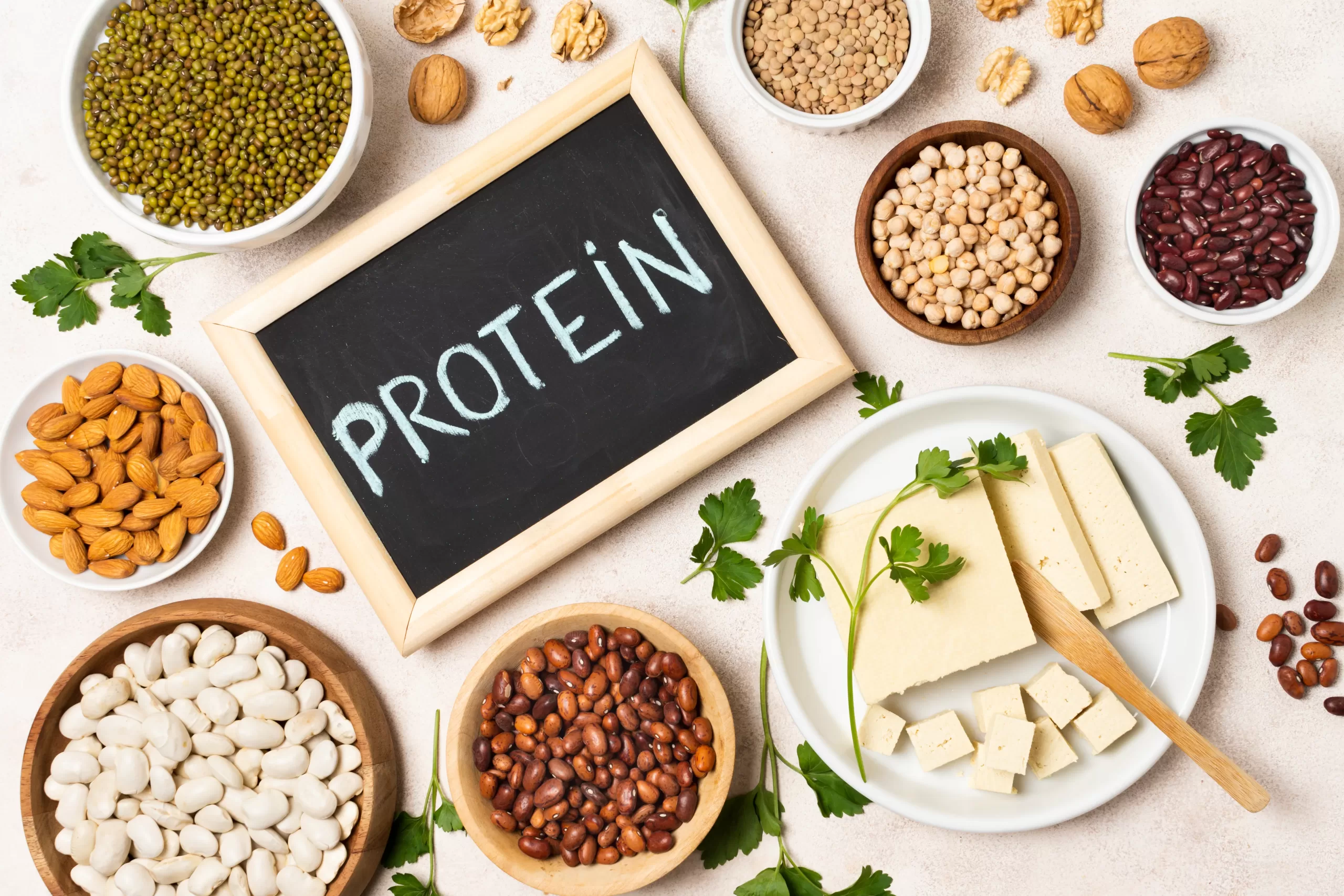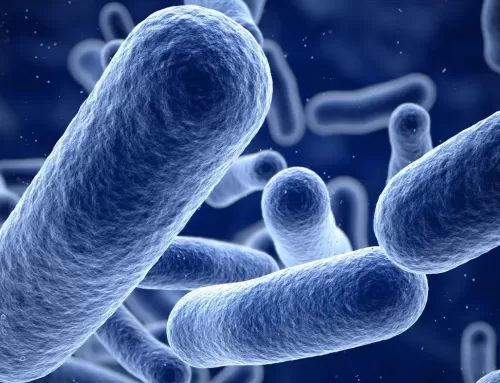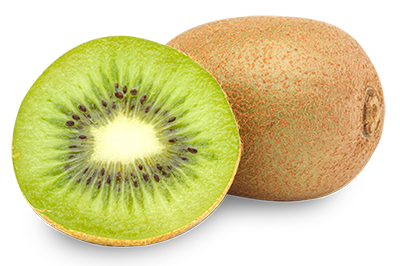Actinidin;
The Powerful Protein-Digesting Enzyme from Kiwifruit
Actinidin is a unique proteolytic enzyme found in kiwifruit that offers significant benefits for protein digestion and overall digestive health. This powerful enzyme can break down a wide range of food proteins more effectively than our natural digestive enzymes, potentially improving protein absorption and reducing digestive discomfort. Research suggests actinidin may be particularly beneficial for digesting meat, dairy, and plant-based proteins, as well as potentially aiding those with gluten sensitivities. Its broad pH activity range and ability to enhance gastric emptying make it a promising digestive aid for various populations, including athletes and the elderly. As research into this interesting enzyme continues, the current evidence points to actinidin as a valuable natural supplement for supporting optimal protein digestion and gastrointestinal function.
What’s covered:
– What actinidin is and its origins
– Main benefits of actinidin for digestion
– How actinidin works to break down proteins
– Comparison of actinidin to other digestive enzymes
– Actinidin’s effects on specific digestive issues
– Potential benefits for gluten intolerance and celiac disease
– Impact on plant-based protein digestion
– Benefits for protein digestion and absorption
– Dosage recommendations for digestive benefits
– Actinidin’s effects on dairy protein digestion
What is Actinidin?
Actinidin (EC 3.4.22.14) is a cysteine protease enzyme found primarily in kiwifruit (genus Actinidia). It was first identified in 1959 by A.C. Arcus, who discovered its ability to prevent jellies made with kiwifruit from solidifying due to its proteolytic action on gelatin. Actinidin is particularly abundant in green kiwifruit (Actinidia deliciosa), where it can constitute up to 40-50% of the fruit’s soluble protein content at harvest.
This enzyme belongs to the papain-like family of cysteine proteases, sharing similarities with other plant-derived proteases such as papain from papaya and bromelain from pineapple. However, actinidin has some unique properties that set it apart from its enzymatic cousins.
Main Benefits of Actinidin
The primary benefits of actinidin revolve around its powerful protein-digesting capabilities:
- Enhanced Protein Digestion: Actinidin can break down a wide range of food proteins more completely and rapidly than our natural digestive enzymes.
- Improved Digestive Comfort: By enhancing protein breakdown, actinidin may reduce bloating, gas, and discomfort associated with high protein intake.
- Faster Gastric Emptying: Studies have shown that actinidin can increase the rate of stomach emptying, potentially leading to faster nutrient absorption.
- Broader pH Activity Range: Unlike some other proteases, actinidin remains active across a wide pH range (3-10), allowing it to function effectively in various parts of the digestive tract.
- Potential Allergen Reduction: Actinidin’s proteolytic action may help reduce the allergenicity of some food proteins, such as gluten and whey.

How Does Actinidin Work?
Actinidin functions as a proteolytic enzyme, meaning it catalyses the breakdown of proteins into smaller peptides and amino acids. Its mechanism of action involves:
- Broad Specificity: Actinidin can hydrolyse a wide range of peptide bonds, particularly those adjacent to lysine residues.
- Complementary Action: It works alongside our natural digestive enzymes, breaking down protein bonds that pepsin and other enzymes may not efficiently cleave.
- pH Adaptability: Actinidin remains active in both acidic (stomach) and more neutral (small intestine) environments, allowing it to aid digestion throughout the gastrointestinal tract.
- Exposure of New Cleavage Sites: By partially hydrolysing proteins, actinidin may expose new sites for further breakdown by other digestive enzymes.
Comparison to Other Digestive Enzymes
Actinidin stands out from other digestive enzymes in several ways:
- Broader pH Range: Actinidin functions effectively from pH 3-10, whereas enzymes like papain are more limited (pH 5-7).
- Temperature Stability: Actinidin has a lower denaturation temperature (60°C) compared to enzymes like bromelain and papain, which remain active at higher temperatures.
- Specificity: Actinidin shows a preference for certain proteins, such as whey proteins, over others.
- Complementary Action: Unlike some exogenous enzymes that may compete with natural digestive processes, actinidin appears to work synergistically with our own enzymes.
Actinidin and Specific Digestive Issues
Actinidin may offer benefits for various digestive concerns:
- Protein-Related Bloating: By enhancing protein breakdown, actinidin may reduce bloating and discomfort associated with high-protein meals.
- Slow Gastric Emptying: Actinidin’s ability to speed up gastric emptying could be beneficial for those with delayed stomach emptying.
- Insufficient Digestive Enzyme Production: For individuals with reduced natural enzyme production, such as the elderly, actinidin may help compensate and improve overall protein digestion.
Actinidin and Gluten Intolerance/Celiac Disease
Recent research has shown promising results regarding actinidin’s potential to aid those with gluten sensitivities:
- Gluten Protein Breakdown: Actinidin has demonstrated the ability to efficiently cleave gluten proteins, including the highly resistant and immunogenic 33-mer gliadin peptide.
- Reduced Immunogenic Peptides: Studies have shown that actinidin can reduce the amount of immunogenic gluten peptides reaching the small intestine.
- Potential Therapeutic Approach: While more research is needed, these findings suggest that actinidin could potentially be developed as an alternative or complementary treatment to gluten-free diets.
Effects on Plant-Based Protein Digestion
Actinidin has shown efficacy in enhancing the digestion of various plant-based proteins:
- Pea Protein: Actinidin has been found to improve the digestion of pea protein, which is becoming increasingly popular among vegan athletes.
- Soy Protein: Studies have demonstrated actinidin’s ability to enhance the breakdown of soy protein isolate.
- Gluten: As mentioned earlier, actinidin shows particular promise in breaking down gluten proteins.
- Other Plant Proteins: Research has also indicated improved digestion of zein (corn protein) and other cereal proteins when exposed to actinidin.
Types of Proteins Actinidin Helps Digest
Actinidin has been shown to enhance the digestion of a wide range of proteins:
- Meat Proteins: Beef, chicken, and fish proteins are effectively broken down by actinidin.
- Dairy Proteins: Both casein and whey proteins show improved digestion with actinidin.
- Plant Proteins: As mentioned, soy, pea, gluten, and other plant-based proteins are more efficiently digested with actinidin.
- Collagen: Actinidin has demonstrated the ability to break down collagen, which is why kiwifruit has long been used as a meat tenderizer.

Potential Benefits for Protein Digestion
The enhanced protein digestion facilitated by actinidin may lead to several benefits:
- Improved Nutrient Absorption: Faster and more complete protein breakdown may lead to better amino acid absorption.
- Reduced Digestive Discomfort: By aiding protein digestion, actinidin may help reduce bloating and gas associated with high-protein meals.
- Faster Recovery for Athletes: Improved protein digestion and absorption could potentially enhance muscle protein synthesis and recovery.
- Support for Elderly Nutrition: As protein digestion efficiency often decreases with age, actinidin may help older adults better utilize dietary proteins.
Actinidin Dosage for Digestive Benefits
While optimal dosage can vary depending on individual needs and the specific product used, some general guidelines emerge from the research:
- Kiwifruit Consumption: Eating two kiwifruit with a meal has been suggested to provide digestive benefits.
- Supplement Form: Products like Actazin® typically recommend a dose of around 600 mg for digestive health support.
- Concentration Matters: Studies have indicated that actinidin concentrations above 2.7 U/mL at pH values greater than 2 are ideal for gluten hydrolysis.
It’s important to note that individual responses may vary, and it’s always best to consult with a healthcare professional before starting any new supplement regimen.
Actinidin and Protein Absorption
While actinidin clearly enhances protein breakdown, its effects on overall protein absorption are still being studied. However, some promising indications include:
- Faster Gastric Emptying: By speeding up stomach emptying, actinidin may make digested proteins available for absorption more quickly.
- More Complete Protein Breakdown: The more thorough breakdown of proteins facilitated by actinidin could potentially lead to improved amino acid absorption.
- Enhanced Amino Acid Availability: Studies in pigs have shown improved apparent amino acid digestibility when kiwifruit was included in the diet.
Actinidin and Dairy Protein Digestion
Actinidin has shown particular efficacy in enhancing the digestion of dairy proteins:
- Casein Digestion: Actinidin has been found to significantly enhance the digestion of casein, the main protein in milk.
- Whey Protein: Studies indicate that actinidin may have a preference for whey proteins over caseins, potentially improving their digestion even further.
- Reduced Allergenicity: The breakdown of milk proteins by actinidin may potentially help reduce their allergenicity, though more research is needed in this area.

Benefits for Athletes
Athletes may find several potential benefits from incorporating actinidin into their nutrition strategy:
- Enhanced Protein Utilization: Improved digestion and absorption of dietary proteins could support muscle protein synthesis and recovery.
- Reduced Gastrointestinal Discomfort: Athletes consuming high amounts of protein may experience less bloating and discomfort with actinidin supplementation.
- Support for Plant-Based Athletes: Actinidin’s ability to enhance the digestion of plant proteins like pea and soy could be particularly beneficial for vegan or vegetarian athletes.
- Potential Performance Benefits: While more research is needed, one study found that an actinidin-containing drink improved endurance performance in athletes.
Actinidin vs. Pepsin for Protein Digestion
While both actinidin and pepsin are proteolytic enzymes, they have some key differences:
- pH Range: Actinidin functions effectively across a broader pH range (3-10) compared to pepsin, which is most active in highly acidic environments.
- Substrate Specificity: Actinidin can hydrolyse a wider range of peptide bonds than pepsin, potentially leading to more complete protein breakdown.
- Complementary Action: Rather than competing with pepsin, actinidin appears to work alongside it, breaking down protein bonds that pepsin may not efficiently cleave.
- Origin and Stability: As a plant-derived enzyme, actinidin may be more stable in various food processing conditions compared to animal-derived pepsin.
Conclusion
In conclusion, actinidin from kiwifruit emerges as a powerful ally in protein digestion, offering a range of potential benefits for digestive health, nutrient absorption, and even specific conditions like gluten sensitivity. Its unique properties and broad-spectrum activity make it a promising natural supplement for enhancing protein utilisation and overall gastrointestinal function.
For those interested in exploring the benefits of actinidin, products like Actazin® offer a concentrated, standardised source of this remarkable enzyme. As research continues to unfold, actinidin may play an increasingly important role in supporting optimal digestion and nutrition for a wide range of individuals, from athletes to those with specific digestive concerns.
References:
Chen, J. D., Yang, Z. Y., Ma, S. H., & Zhen, Y. C. (1990). The effects of actinidia sinensis planch (kiwi) drink supplementation on athletes training in hot environments. The Journal of Sports Medicine and Physical Fitness, 30(2), 181-184.
Dimidi, Eirini et al. The Lancet Gastroenterology & Hepatology, Could a kiwifruit a day keep the doctor away? Volume 5, Issue 7, 648
Gong, X., Morton, J. D., Bhat, Z. F., Mason, S. L., & Bekhit, A. E. D. A. (2020). Comparative efficacy of actinidin from green and gold kiwi fruit extract on in vitro simulated protein digestion of beef Semitendinosus and its myofibrillar protein fraction. International Journal of Food Science and Technology, 55(2), 742-750.
Jayawardana, I. A. (2022). Effect of Kiwifruit actinidin on the digestion of gluten proteins: a thesis presented in partial fulfilment of the requirements for the degree of Doctor of Philosophy in Nutritional Sciences at Massey University, Palmerston North, New Zealand (Doctoral dissertation, Massey University).
Jayawardana, I. A., Boland, M. J., Higgs, K., Zou, M., Loo, T., Mcnabb, W. C., & Montoya, C. A. (2021). The kiwifruit enzyme actinidin enhances the hydrolysis of gluten proteins during simulated gastrointestinal digestion. Food chemistry, 341(Pt 1), 128239. https://doi.org/10.1016/j.foodchem.2020.128239
Jayawardana, I. A., Boland, M. J., Loo, T. S., McNabb, W. C., & Montoya, C. A. (2022). Actinidin reduces gluten-derived immunogenic peptides reaching the small intestine in an in vitro semi-dynamic gastrointestinal tract digestion model. Food Research International, 159, 111560.
Kaur, L., & Boland, M. (2013). Influence of kiwifruit on protein digestion. Advances in food and nutrition research, 68, 149–167. https://doi.org/10.1016/B978-0-12-394294-4.00008-0
Kaur, L., Mao, B., Bailly, J., Oladeji, O., Blatchford, P., & McNabb, W. C. (2022). Actinidin in Green and SunGold Kiwifruit Improves Digestion of Alternative Proteins-An In Vitro Investigation. Foods (Basel, Switzerland), 11(18), 2739. https://doi.org/10.3390/foods11182739
Kaur, L., Rutherfurd, S. M., Moughan, P. J., Drummond, L., & Boland, M. J. (2010). Actinidin enhances gastric protein digestion as assessed using an in vitro gastric digestion model. Journal of agricultural and food chemistry, 58(8), 5068–5073. https://doi.org/10.1021/jf903332a
Kaur, S., Vasiljevic, T., & Huppertz, T. (2023). Milk Protein Hydrolysis by Actinidin-Kinetic and Thermodynamic Characterisation and Comparison to Bromelain and Papain. Foods (Basel, Switzerland), 12(23), 4248. https://doi.org/10.3390/foods12234248
Martin, H., Cordiner, S. B., & McGhie, T. K. (2017). Kiwifruit actinidin digests salivary amylase but not gastric lipase. Food & function, 8(9), 3339-3345.
Montoya, C. A., Hindmarsh, J. P., Gonzalez, L., Boland, M. J., Moughan, P. J., & Rutherfurd, S. M. (2014). Dietary actinidin from kiwifruit (Actinidia deliciosa cv. Hayward) increases gastric digestion and the gastric emptying rate of several dietary proteins in growing rats. The Journal of nutrition, 144(4), 440–446. https://doi.org/10.3945/jn.113.185744
Puja, S., Seth, S., Hora, R., Kaur, S., & Mishra, P. C. (2023). Understanding the molecular basis for enhanced glutenase activity of actinidin. bioRxiv, 2023-05.
Taylor & Francis, “Actinidin” https://taylorandfrancis.com/knowledge/Medicine_and_healthcare/Physiology/Actinidin/
d-prevention/foods-for-constipation
Ma, T., Lan, T., Geng, T., Ju, Y., Cheng, G., Que, Z., Gao, G., Fang, Y., & Sun, X. (2019). Nutritional properties and biological activities of kiwifruit (Actinidia) and kiwifruit products under simulated gastrointestinal in vitro digestion. Food & nutrition research, 63, 10.29219/fnr.v63.1674. https://doi.org/10.29219/fnr.v63.1674
Maggo, J., Ng, H. M., Bayer, S. B., Wall, C. L., Hoad, C., Marciani, L., … & Gearry, R. B. (2024). Impact of Green Kiwifruit on Adults With Constipation. Canadian journal of dietetic practice and research, 85(3), 355-355.
Mayo Clinic, “Constipation” https://www.mayoclinic.org/diseases-conditions/constipation/symptoms-causes/syc-20354253
Monash University https://www.monashfodmap.com/blog/two-kiwi-fruit-day-keep-constipation-bay/
National Institute of Diabetes and Digestive and Kidney Diseases, NIH, “Constipation” https://www.niddk.nih.gov/health-information/digestive-diseases/constipation
NHS https://www.nhs.uk/conditions/constipation/
Victoria State Government Department of Health https://www.betterhealth.vic.gov.au/health/conditionsandtreatments/constipation
Zespri https://www.zespri.com/en-NZ/digestive-health ; https://www.zespri.com/en-US/nutrition










